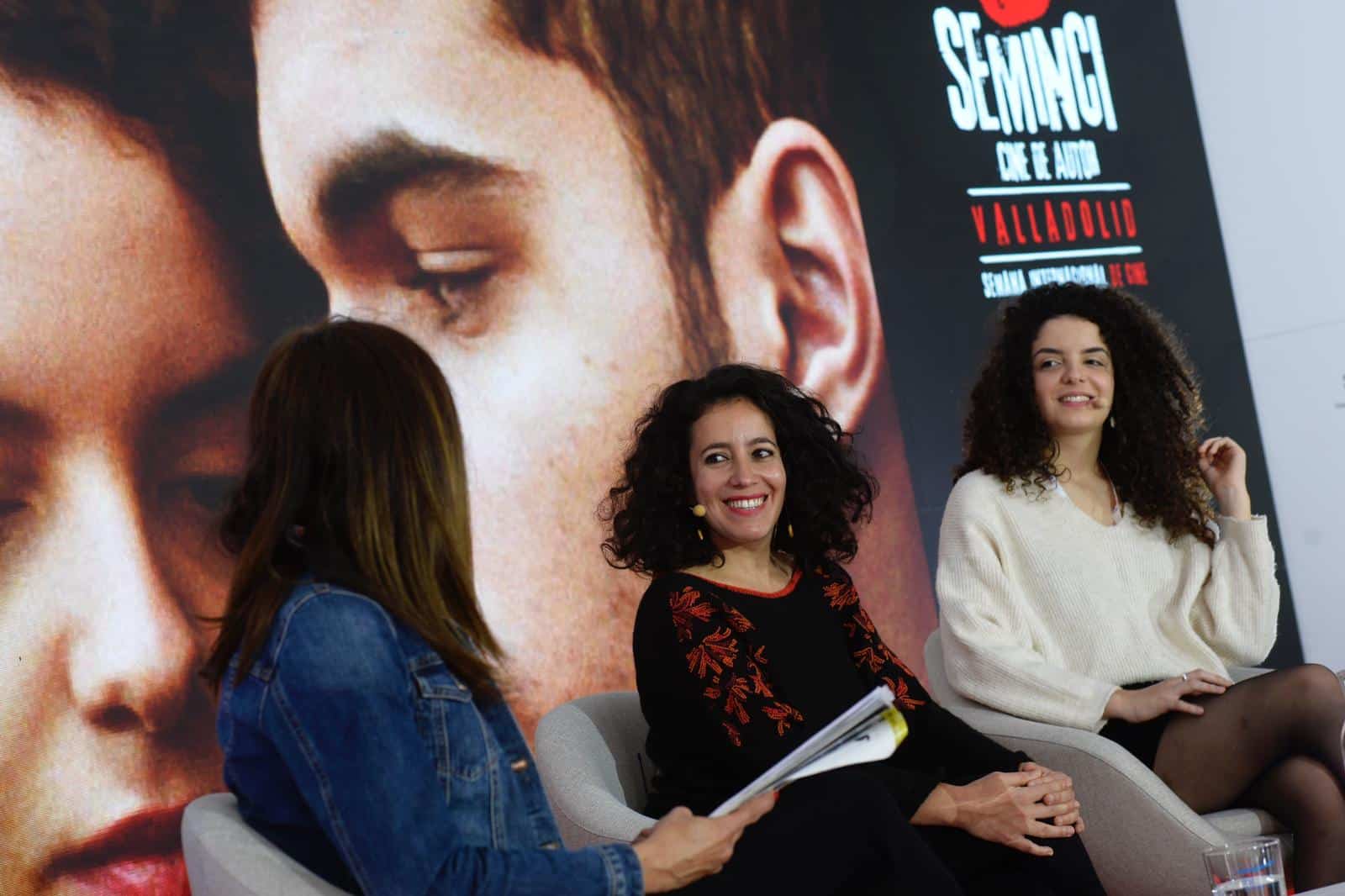“The wonderful ancient Arabic literature is absolutely unknown to young people, and I would like this film to help them discover it.” Director Leyla Bouzid (Tunisia, 1984) appeared this Tuesday 26th October 2021 in the Hall of Mirrors of Calderón Theatre, accompanied by actress Zbeida Belhajamor, to talk about her fifth film, Une Histoire d’Amour et de Désir [A Tale of Love and Desire], with which she is competing in the Official Section for the Golden Spike. And hers is a film about adolescent fear of the discovery of sex and love that, contrary to the norm, “is not told from the woman’s point of view, but from the man’s,” she stressed.
Bouzid has made a film “for the senses” based on a love story that is more complex than it seems. “The whole film is a visual and sensual game,” said the director at a press conference. “I wanted to tell, through Arabic literature, the story of Ahmed, a young Algerian-French man who doesn’t speak Arabic, and who literature helps to discover himself.”
The film is about two 18-year-olds from different cultures, Ahmed and Farah, who are studying Arabic poetry at the Sorbonne. Ahmed, of Algerian origin, is a shy boy who grew up in a suburb of Paris. Farah, a Tunisian, is an audacious, self-confident, secular young woman who has recently arrived in the French capital. They both discover a series of Arabic authors who, in medieval times, wrote sensual and erotic poetry, while Ahmed falls madly in love with Farah and tries to repress his desire.
Actress Zbeida Belhajamor, who plays the young Farah in the film, explained that her character comes from Tunisia, where she has learnt to be free, and what she wants is to live that freedom without restrictions in Paris: “Farah is many things, she is a lover of literature who discovers Arabic literature, as ancient as it is original, and also wants to be a journalist, not to put any limits on herself, to live to the end…” Something that, in principle, clashes with Ahmed, who suffers the torments of a self-censored desire.
“Ahmed’s character has no connection to Algeria (from where his parents fled), he has constructed his identity artificially,” explained the director, who revealed that the poem Farah writes to Ahmed at one point in the film is actually a poem written in Spain in the 11th century by Ibn Hazm, an Andalusian poet. “When Ahmed doesn’t understand Arabic, the poems in the film are not translated, but as he understands it, you hear him say them, first in French and then in Arabic, so that you can hear the musicality of that language,” said Bouzid, who left Tunisia to go to Paris in 2003, when he was 18 or 19, to study French literature at the Sorbonne and, later, film directing at La Fémis.
The director – whose first feature film, À Peine J’Ouvre les Yeux [As I Open My Eyes], won an award in Venice before being selected at the Seminci as part of the Meeting Point section – was also very satisfied with the choice of the two leading actors, Sami Outalbali and Zbeida Belhajamor: “I think it was a very good choice, we needed a couple with feelingand chemistry between them; as soon as you see them as a spectator you can’t wait for them to get together.”
The film also unveils, at the end, that Ahmed the father was an educated journalist, forced to flee Algeria for political reasons, who spends his days lying on the sofa because he decided not to work rather than have a menial job. Leyla Bouzid alludes to this in a veiled way, but deep down it is something that is also in her life – her own father, filmmaker Noori Bouzid, was arrested and imprisoned for almost six years for collaborating with the Groupe d’Etude et d’Action Socialiste Tunisienne (GEAST).
Une Histoire d’Amour et de Désir will be screened today Tuesday 26th at 19.00h at Zorrilla Theatre, Friday 29th at 22.30h at Broadway Cinemas and Saturday 30th at 19.00 at Carrión Theatre.



























![Logo Foro Cultural de Austria Madrid[1]](https://www.seminci.com/wp-content/uploads/2024/09/Logo-Foro-Cultural-de-Austria-Madrid1-300x76.jpg)








